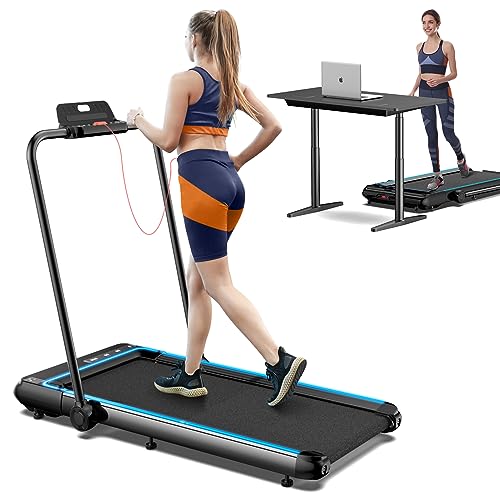The One Walking Machine Trick Every Person Should Learn
The Walking Machine: A Comprehensive Guide to Your Fitness Companion
In today's hectic world, where time is a luxury, keeping a consistent exercise regimen can be an obstacle. For lots of, a walking machine— commonly called a treadmill— serves as an ideal fitness buddy. This article offers an in-depth take a look at walking machines, including their benefits, types, maintenance ideas, and often asked questions.
Why Choose a Walking Machine?
Walking machines provide a practical and effective way to incorporate cardiovascular exercise into every day life. Here are numerous key advantages:
- Convenience: Walking machines permit people to work out anytime, regardless of weather or time constraints. They are ideal for hectic schedules.
- Versatility: Users can stroll, jog, or run at their own rate and intensity.
- Safety: Walking machines provide a lower risk of injury compared to outside walking or running, especially for beginners or those recuperating from injuries.
- Tracking Progress: Many treadmills included built-in monitors that track metrics like speed, range, and calories burned.
Kinds Of Walking Machines
When considering a walking machine, it's important to select the best type based on individual fitness goals and space restrictions. Below are the main types of walking machines:
Type
Description
Manual Treadmills
These machines do not have a motor, and users require to stroll or go to rotate the belt.
Electric Treadmills
Powered by an electric motor, enabling users to set the speed and incline effortlessly.
Folding Treadmills
Designed for easy storage, these treadmills can be folded up when not in usage.
Desk Treadmills
Suitable for a dual work and workout environment, these compact machines enable walking while working.
Slope Trainers
These enable users to mimic uphill walking, enhancing exercise strength and calorie burn.
Selecting the Right Walking Machine
Choosing the ideal walking machine can significantly impact motivation and efficiency. Here are some aspects to think about:
Key Features to Look For
- Motor Power: A powerful motor makes sure a smooth and consistent workout. For periodic walkers, a 1.5 HP motor is generally adequate; for much heavier use, try to find 3.0 HP and above.
- Belt Size: A wider and longer belt offers more space for a comfy stride. Standard sizes range from 16 inches broad and 50 inches long.
- Incline Options: Adjustable slope settings can imitate walking or running uphill, increasing the intensity of the workout.
- Shock Absorption: Good shock absorption reduces the danger of joint injuries and improves comfort.
- Console Features: Look for built-in workouts, heart rate monitors, and connection functions like Bluetooth for a more engaging experience.
Budget Considerations
Walking machines been available in a large range of rates, depending on features and construction quality. Here's a rough budget plan breakdown:
Price Range
Functions
Under ₤ 300
Basic handbook or small electric treadmills with minimal features.
₤ 300 – ₤ 700
Advanced electric treadmills with incline, medium power motors, and better service warranties.
₤ 700 – ₤ 1500
Top quality electric treadmills with bigger built-in displays, substantial features, and guarantees.
₤ 1500 and above
High-end models providing advanced technology, features, and durable building for serious physical fitness enthusiasts.
Maintenance Tips for Your Walking Machine
To make sure longevity and optimal efficiency of a walking machine, consider the following maintenance ideas:
- Regular Cleaning: Dust and sweat can accumulate on the machine and the belt. Wipe down the surface areas and tidy the belt regularly.
- Lubrication: Depending on the design, lubing the running belt periodically can avoid wear and tear. Check the maker standards for suggested lubrication schedules.
- Inspection: Periodically examine the machine for loose screws or worn parts. Aya Best up and change as required.
- Calibration: Occasionally, inspect the calibration of your machine's metrics to guarantee they offer accurate information.
- Correct Use: Follow the maker's suggestions for weight limitations and functional standards.
FAQs About Walking Machines
1. Are walking machines a great exercise?
Yes, walking machines offer an exceptional cardiovascular exercise, can assist with weight-loss, and improve general health.
2. How often should I use a walking machine?
Go for at least 150 minutes of moderate-intensity aerobic activity weekly, which can easily be attained with regular sessions on a walking machine.
3. Can I reduce weight on a walking machine?
Yes, including a walking machine routine into a healthy diet plan can promote weight loss, particularly if combined with intervals and incline training.
4. Is it safe for elders to use a walking machine?
Yes, walking machines can be safe for elders with low-impact settings and security features like handrails. However, people ought to seek advice from their health care supplier before beginning any exercise program.
5. What's the difference between a treadmill and a walking machine?
The term “walking machine” generally refers to a treadmill intended for walking, while “treadmill” can refer to machines utilized for various intensities, consisting of running.
With their adaptability and convenience, walking machines can substantially improve one's physical fitness journey. By thoroughly choosing the ideal type, ensuring appropriate upkeep, and integrating different exercise methods, users can optimize their walking machine's benefits. As with any exercise routine, consistency is key to accomplishing lasting physical fitness results.
